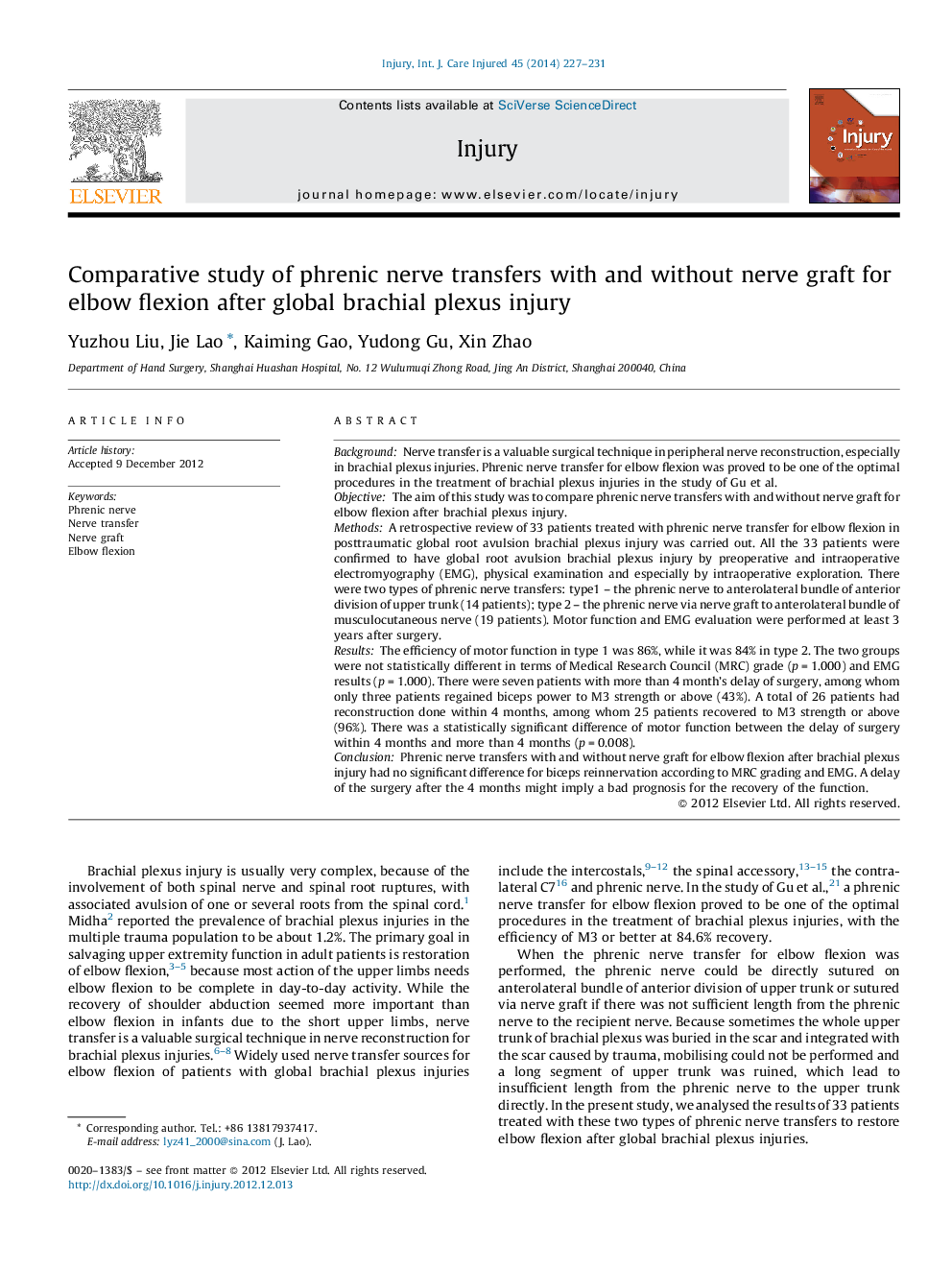| Article ID | Journal | Published Year | Pages | File Type |
|---|---|---|---|---|
| 3239827 | Injury | 2014 | 5 Pages |
BackgroundNerve transfer is a valuable surgical technique in peripheral nerve reconstruction, especially in brachial plexus injuries. Phrenic nerve transfer for elbow flexion was proved to be one of the optimal procedures in the treatment of brachial plexus injuries in the study of Gu et al.ObjectiveThe aim of this study was to compare phrenic nerve transfers with and without nerve graft for elbow flexion after brachial plexus injury.MethodsA retrospective review of 33 patients treated with phrenic nerve transfer for elbow flexion in posttraumatic global root avulsion brachial plexus injury was carried out. All the 33 patients were confirmed to have global root avulsion brachial plexus injury by preoperative and intraoperative electromyography (EMG), physical examination and especially by intraoperative exploration. There were two types of phrenic nerve transfers: type1 – the phrenic nerve to anterolateral bundle of anterior division of upper trunk (14 patients); type 2 – the phrenic nerve via nerve graft to anterolateral bundle of musculocutaneous nerve (19 patients). Motor function and EMG evaluation were performed at least 3 years after surgery.ResultsThe efficiency of motor function in type 1 was 86%, while it was 84% in type 2. The two groups were not statistically different in terms of Medical Research Council (MRC) grade (p = 1.000) and EMG results (p = 1.000). There were seven patients with more than 4 month's delay of surgery, among whom only three patients regained biceps power to M3 strength or above (43%). A total of 26 patients had reconstruction done within 4 months, among whom 25 patients recovered to M3 strength or above (96%). There was a statistically significant difference of motor function between the delay of surgery within 4 months and more than 4 months (p = 0.008).ConclusionPhrenic nerve transfers with and without nerve graft for elbow flexion after brachial plexus injury had no significant difference for biceps reinnervation according to MRC grading and EMG. A delay of the surgery after the 4 months might imply a bad prognosis for the recovery of the function.
